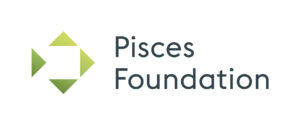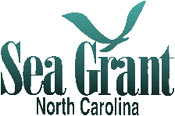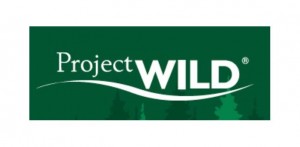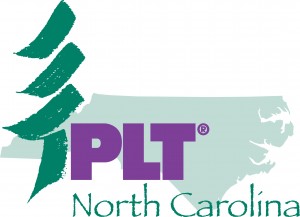Our research focuses broadly on children and nature: how nature benefits children, and how children can benefit nature. We focus on kids for several reasons. Early intervention matters. Working with kids can set them on a lifelong trajectory of environmental engagement. Secondly, conservation inherently tied to the next generation; otherwise what are we conserving our land, wildlife & resources for? Lastly, children have a unique perspective that can make a difference. We are convinced that kids can inspire action among adults on issues from what foods we buy to how we address climate change. Read on to see what we are up to!
Current Projects
Building a Culture of and Capacity for EE Evaluation
How are environmental education organizations finding ways to build capacity for evaluation? How are they working together to measure common outcomes and work toward common goals? How can we support this process for the benefit the field? We are looking uncover promising practices for collective evaluation in environmental education and identify paths forward toward a culture and capacity of evaluation. This is part of a larger grant awarded to Duke University led by Charlotte Clark.
NC State PIs: Kathryn Stevenson, KC Busch
PhD Student: Lauren Gibson
Strengthening Community Networks for Environmental Learning and Resilience Through Children 
What does it mean for entire communities to be environmentally literate? How can schools serve as community hubs to build shared understandings, motivations, and action strategies to address environmental challenges? We are exploring these questions through a Sea Grant project focused on engaging communities in conversations about water quality, led by high school students.
PIs: Kathryn Stevenson, Liz Demattia, Nils Peterson, KC Busch, Sarah Carrier, Danielle Lawson
PhD Student: Lauren Gibson
Strengthening local food systems through children: The role of agritourism in agricultural literacy and purchasing behaviors of local foods.

Why do food marketers target children in advertisement for breakfast cereals or fast food when parents are the ones buying the food? Because it works. Can the same thing work with local foods? This project is exploring how agritourism (visiting a farm for recreation or education) might simultaneously teach children about their local food system as well as convince families to support their local farmers through their purchasing power.
PIs: Carla Barbieri, Kathryn Stevenson & Whitney Knollenberg
PhD student: Sara Brune Arita
 Pathways to Environmental Engagement
Pathways to Environmental Engagement
What makes kids turn into environmentally engaged adults? We are continuing to work with with Muddy Sneakers on this project to try to identify the mosaic of experiences that might foster environmental engagement throughout adolescence. We thing Muddy Sneakers and similar experiences might have a role, but stay tuned to read more about we find out.
PIs: Kathryn Stevenson, Nils Peterson, Lincoln Larson, Sarah Carrier, Renee Strnad
PhD student: Brent Jackson
 Improving environmental decision making in coastal communities through giving children a voice: Building science literacy, civic engagement, and coastal resilience through K-12 citizen science. How can kids shine a light on environmental issues so that communities move to action? Young people have led nearly every successful social movement, from civil rights to starting Earth Day. In this project, we explore how kids can use citizen science to learn more about environmental challenges in their communities and share what they learn in ways that inspire adults to take action.
Improving environmental decision making in coastal communities through giving children a voice: Building science literacy, civic engagement, and coastal resilience through K-12 citizen science. How can kids shine a light on environmental issues so that communities move to action? Young people have led nearly every successful social movement, from civil rights to starting Earth Day. In this project, we explore how kids can use citizen science to learn more about environmental challenges in their communities and share what they learn in ways that inspire adults to take action.
PIs: Kathryn Stevenson, Liz Demattia, Nils Peterson, KC Busch, Sarah Carrier, Renee Strnad
PhD Student: Jenna Hartley
Past Projects
Identifying how outdoor education advances environmental literacy and classroom achievement: an evaluation of Muddy Sneakers.
In 2015, we started a two-year program evaluation of Muddy Sneakers and looked at some really exciting research questions. We found that the program seemed to help girls stay engaged in science and was especially beneficial for students with IEPs.
Related publications in Frontiers Communication, Frontiers Education
Fostering Climate Literacy and Coastal Hazard Resilience in Coastal  Communities through Intergenerational Transfer. This project leveraged our climate change curriculum to see if robust field-based educational experience will not only benefit kids, but also “trickle up” to parents through intergenerational transfer. We are partnering with a long list of coastal organizations including the Coastal Federation, Albemarle/Pamlico National Estuary Partnership (APNEP), NC State Parks, the National Park Service, CMAST, and many others
Communities through Intergenerational Transfer. This project leveraged our climate change curriculum to see if robust field-based educational experience will not only benefit kids, but also “trickle up” to parents through intergenerational transfer. We are partnering with a long list of coastal organizations including the Coastal Federation, Albemarle/Pamlico National Estuary Partnership (APNEP), NC State Parks, the National Park Service, CMAST, and many others
Publications in Global Environmental Change


Building Ocean and Climate Literacy in North Carolina through a partnership with Project WILD.
During fall 2014, we wrote a new climate literacy module that will be published internationally through Project WILD. Funded by Sea Grant, we trained teachers in 2014 and 2015 and found the program increased climate knowledge, which was then linked to climate hope, concern, and in turn, behavior.
Publications in Climatic Change, Environmental Education Research, Environmental Conservation, Plos ONE, Sustainability

 Building Environmental Literacy and Leadership through integrating Environmental and Agricultural Education and Service Learning. We collaboratedwith members of the NC Agricultural Education department to train nearly 100 NC high school agriculture teachers in Project Learning Tree. We expect that engaging agricultural teachers with EE curriculum will help them incorporate environmental literacy principals in their classrooms, fostering an EE/agricultural partnership that is often a missed opportunity. We trained our first group of teachers in August 2014 and are analyzing data from the 2014-15 school year. We trained the second group in August 2015 and will be looking at how impacts may change over time.
Building Environmental Literacy and Leadership through integrating Environmental and Agricultural Education and Service Learning. We collaboratedwith members of the NC Agricultural Education department to train nearly 100 NC high school agriculture teachers in Project Learning Tree. We expect that engaging agricultural teachers with EE curriculum will help them incorporate environmental literacy principals in their classrooms, fostering an EE/agricultural partnership that is often a missed opportunity. We trained our first group of teachers in August 2014 and are analyzing data from the 2014-15 school year. We trained the second group in August 2015 and will be looking at how impacts may change over time.
Publications in Environmental Education Research
Building Ocean and Environmental Literacy among North Carolina’s K-12 Students; a Project in Conjunction with the North Carolina Environmental Literacy Plan. This project was my dissertation research. We collected baseline data on environmental literacy for the state of North Carolina in support of the NC Environmental Literacy Plan. We also looked at predictors of environmental literacy in and out of the classroom.
Publication in Climatic Change, Journal of Environmental Education, Plos ONE

